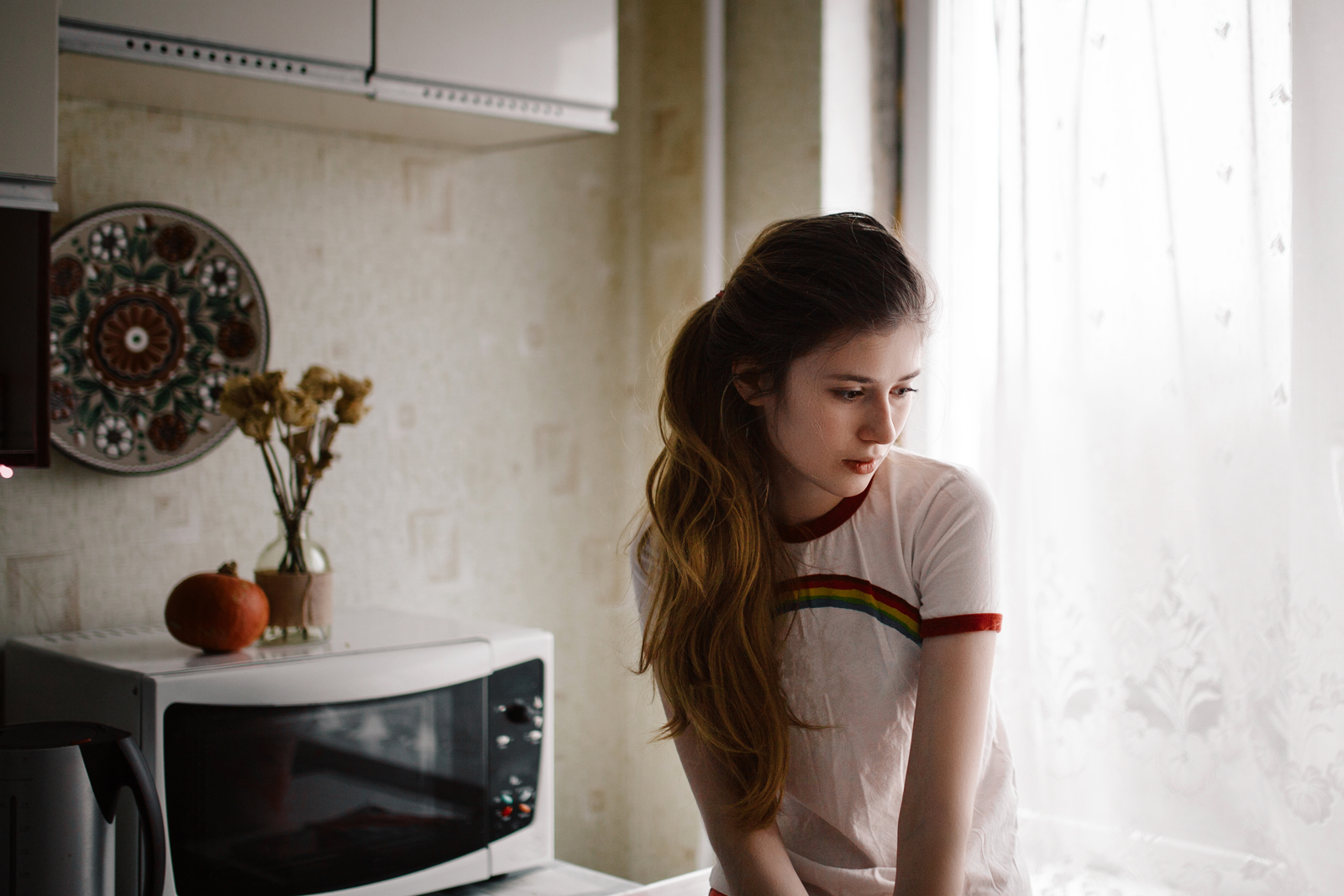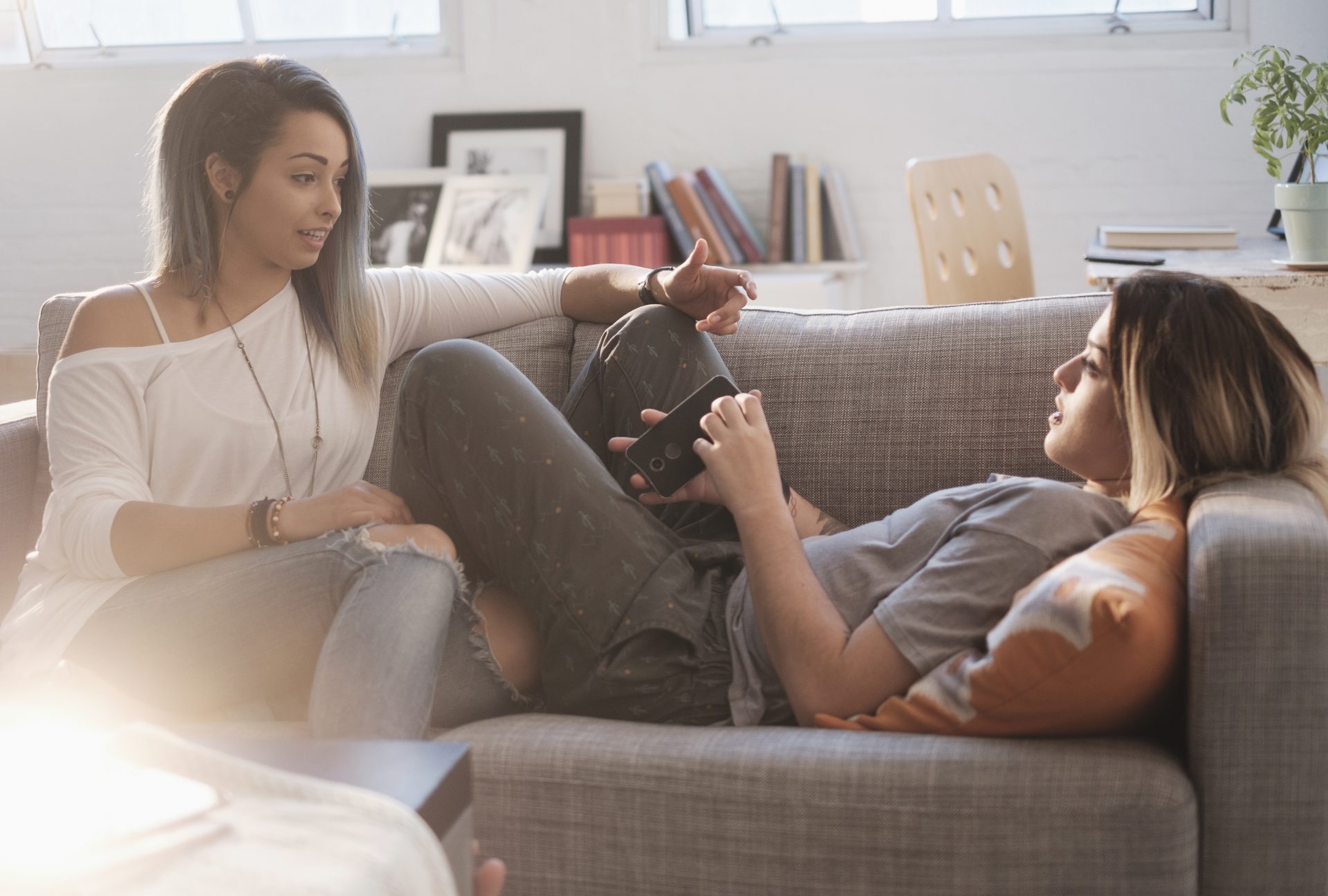With over half of England’s population now under tier two restrictions, you might be worried about living through another lockdown in a flatshare. Here, we asked two mental health and wellbeing experts to share their best tips on how to cope.
Living with other people can be tricky at the best of times. Living with other people during a pandemic brings another level of worries, annoyances and concerns over sharing your home. But that’s exactly what millions of people had to adapt to when we first went into lockdown over seven months ago.
People in houseshares suddenly found themselves having to spend an intense amount of time indoors with their fellow tenants. They had to work, exercise, relax and socialise in the home they shared together. And the anxieties, fear and anger experienced throughout lockdown meant that emotions were high. Even if you lived with your oldest best friend who you get on with like a sister, it was a testing time.
But as restrictions started to ease and the British summer delivered some warm weather, people were free to escape to a park, a beach, a friend’s house or a beer garden. This meant there was less pressure at home.
After a summer of relative freedom, however, half of England’s population has now been placed under harsher tier two and three restrictions. And with the cold weather preventing us from leaving the house much and the rules being quite different to that first full lockdown, what does this mean for people living in a flatshare this autumn and winter?
We’ve put together a guide to help you navigate things.
What are the tier two rules for people living in a flatshare?
You can find a full list of the tier two rules on the government website, but the ones that people in a flatshare perhaps need to be most aware of in their property are:
- People can’t mix with anybody outside their household or support bubble in any indoor setting.
- Tradespeople can continue to go into a household for work.
- The rule of six continues to apply for socialising outdoors, which includes your garden.
If you’re living under tier three restrictions, you won’t be able to have people outside of your household in your garden. You can find the full tier three guidelines on the BBC website.
Can I have a support bubble in a flatshare?
A support bubble is where a household with one adult joins with another household. This means that in a shared property, only one tenant can bring someone who lives alone into the property to support a bubble.

When do tenants need to self-isolate in a flatshare?
If one person in a household starts to display flu-like symptoms – defined as a high temperature, a persistent cough, or loss of taste and smell – everyone living there must self-isolate by staying at home for 10-14 days and get a test as soon as possible.
If one person in a household has recently been in contact with someone who has tested positive for Covid-19 or has returned from a country with a high coronavirus risk, they will also need to order a test and self-isolate for 14 days even if they don’t show symptoms.
Find the full guidelines on self-isolating on the NHS website.
What if a tenant is particularly vulnerable?
If you are particularly vulnerable from coronavirus or live in a houseshare where someone else, it might be a good idea for all tenants to read the government guidelines on shielding and protecting people.
Advice and tips for living in a flatshare during lockdown
It’s important for you to look after your mental health, be aware of other people’s mental health and, ulatimately, live in a safe, nice environment that feels like your home. We spoke to two wellbeing experts for their advice on how to ensure all this during the autumn and winter lockdowns.
Cate Murden, founder of wellbeing and performance company PUSH, tells Stylist:
“It’s more important than ever to communicate. People brain’s are reaching saturation point so tolerance may well be lower. So, clarity and empathy are crucial.
“Humans do something called ‘Confirmation Bias’ where we search for, interpret, view and recall information in a way that confirms or supports whatever were thinking. As you can imagine, this means that we can end up having thoughts that aren’t actually true or indeed beneficial to us (and particularly our relationships). So, a really good tip if you’re coming up against some challenging points or unhelpful thinking in your relationships with your flatmates is to ask yourself the following questions:
“1. Is it true? Do I have any evidence for this thought?
“2. Where would I be without this thought? Does it benefit me or limit me?
“3. What could I think instead? What if I actually thought the opposite?
“Now is the time to get really creative in your relationships. Why not set yourselves a collective house goal to do together? Maybe something to do with your fitness or health which will elevate your mood and help your sense of accomplishment.
“Or maybe do things together that you never get the chance to do: cooking, a book club or journalling. Bring different experiences and passions into your relationship so you have new things to talk and share and try and create a positive experience, albeit a unique and testing time.

Mental health advocate and Therapy Is Magic founder Jo Love shares:
“Have a weekly check where you all agree to sit down and talk about your feelings. Agree to let the other person talk without interruption for a set period of time, say five minutes. This stops things from building up to levels where you might snap and it also helps so you know you can air anything that you might be thinking or feeling without being spoken over or interrupted.
“If verbal communication is hard, a traffic light system, on the back of your door or somewhere else public, can work wonders. Agree exactly what yours means beforehand but, for example, it could mean: red for when you’re struggling or something has upset you; amber for when you’re OK but feeling a little off for whatever reason; and green for when you are A-OK.
“Some friends of mine have a “nice activities board” that they all contribute to and weekly they all pick and do an activity together. This could be going for a walk together, or as the winter is drawing in they are trying to make them cosier and indoors based, such as making candles, roasting marshmallows and pumpkin carving.”
If you do end up struggling, remember that these are still such difficult circumstances, and it’s perfectly understandable not to feel great about things. You can find more information and help on the mental health charity Mind’s website.
Images: Getty
Source: Read Full Article
